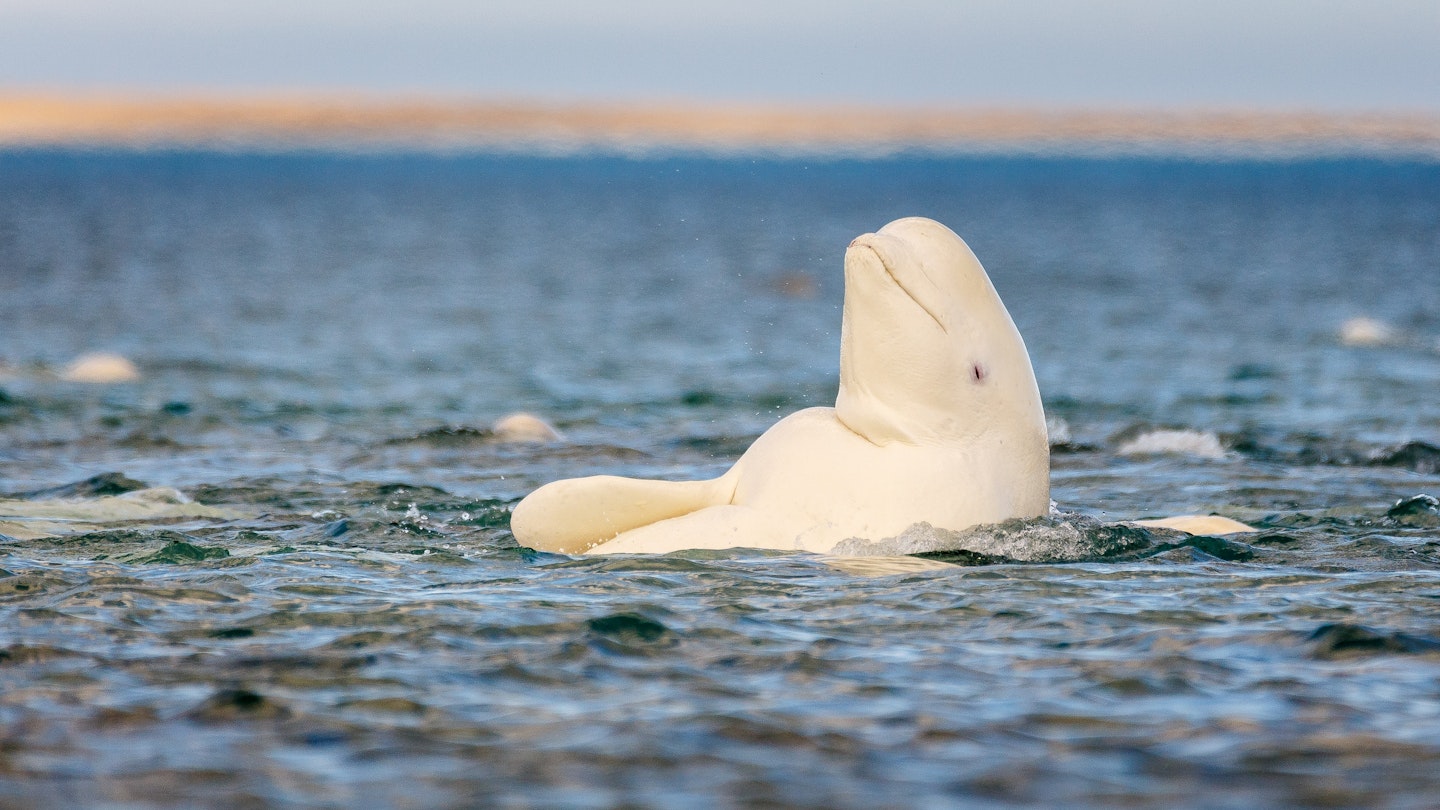Impact of Climate Change on Arctic Wildlife
In late June, the Arctic experienced record-high temperatures – a staggering 100.4 degrees Fahrenheit – and by early July, the total extent of Arctic sea ice was nearing an all-time low. To highlight the climate crisis, the nonprofit Polar Bears International is launching a beluga whale live cam, inviting armchair scientists to participate in a community project dedicated to these marine mammals.
In commemoration of the seventh-annual Arctic Sea Ice Day on July 15, the beluga camera will debut for its eighth summer, providing a season-long view of the underwater activities of the thousands of belugas that inhabit the junction of Manitoba, Canada’s Churchill River and Hudson Bay. Live chats will occur throughout the summer, streamed from the beluga boat, featuring the captain as host along with interviews with scientists, researchers, and other notable guests.
“Belugas are one of three ice-adapted whales in the Arctic,” Dr. Stephen Petersen, director of conservation and research at Canada’s Assiniboine Park Conservancy, explains. “We are fortunate to see substantial numbers of beluga whales in Churchill, as they are protected from predators like killer whales when they are in sea ice.” However, with the decline of sea ice in the northern bay, orcas have begun to utilize the bay for hunting more frequently. “We suspect that changes in sea ice may mean fewer safe havens for whales like belugas from these large Arctic predators,” Petersen adds.

Belugas are not the only species dependent on sea ice for their existence. Polar bears also require it, along with human populations. A Polar Bears International press release emphasizes that sea ice acts as “Earth’s air conditioner, reflecting sunlight to maintain a cool planet,” and advocates for a “swift transition to renewable energy” to rectify climate challenges.

To address these challenges, the organization encourages the public to take action through various means, such as voting with climate in mind, contacting elected representatives about climate issues, signing a petition advocating for renewable energy, and considering the option to adopt a polar bear. Furthermore, remote volunteers can engage in the Beluga Bits project, which relies on volunteer efforts to classify around 800,000 images of these playful, sociable whales, identifying their age, sex, and any unique markings.
“The disappearance of sea ice is linked to the fate of polar bears and the future of our planet,” stated PBI executive director Krista Wright in the press release. “A deeper appreciation and understanding of sea ice can help everyone connect with the Arctic and encourage action. There is still an opportunity to halt this trend and safeguard sea ice for future generations of polar bears and humans alike.”





